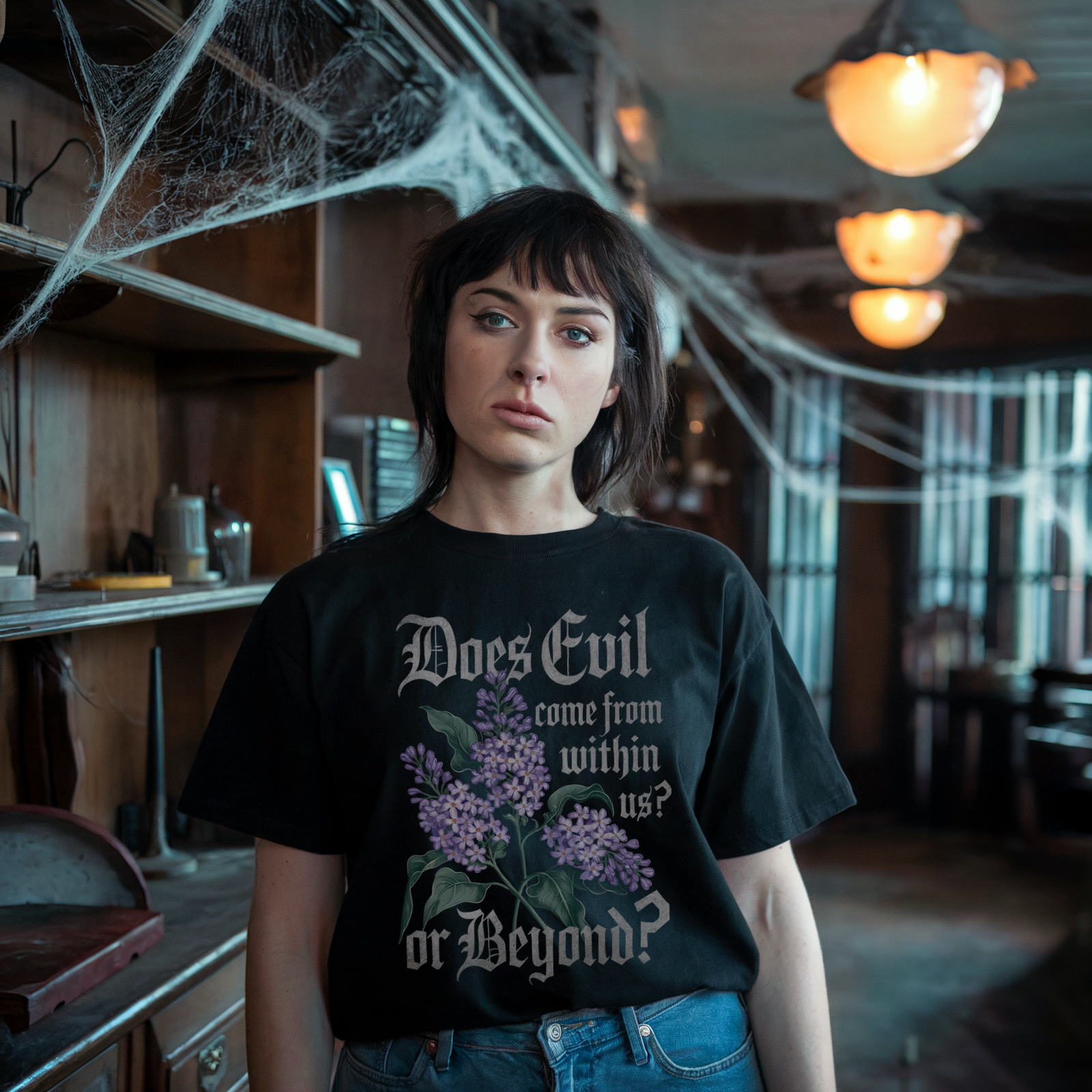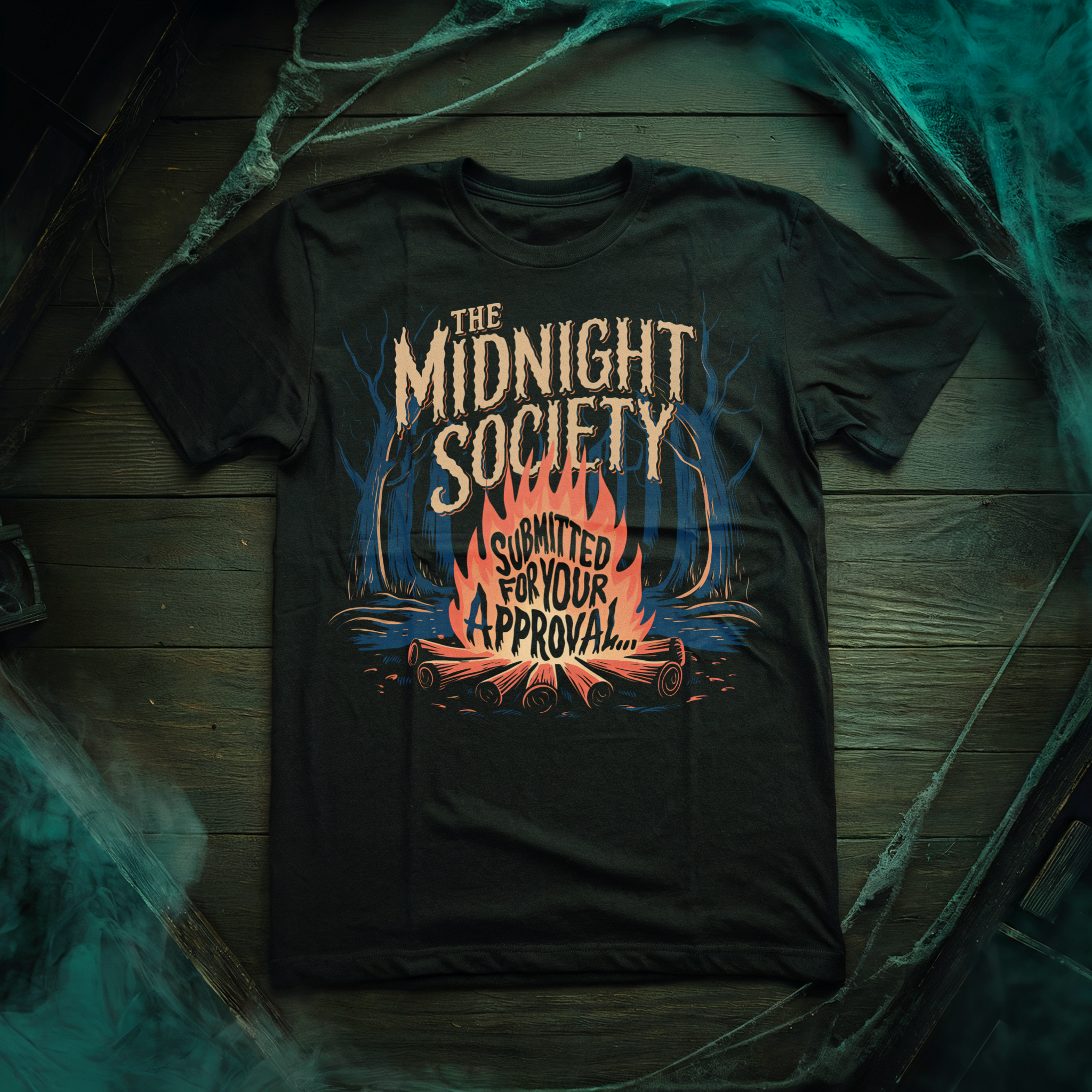Natasha Kermani and Brea Grant’s Lucky enters familiar territory while also breaking new ground. On top of work troubles, author May (Grant) is caught in an unusual situation at home. Each night, she and her partner Ted (Dhruv Uday Singh) are attacked by a masked intruder. Those around her fail to help so May is then forced to confront this otherworldly threat all on her own.
On paper, May‘s life is picture-perfect. She’s a relatively successful young author with a loving husband and a beautiful home. Of course, that all changes when she remembers she has that pesky, uninvited guest who shows up every evening. May is immediately pulled back into this bizarre reality that she somehow forgot about. Ted is oddly glib (“Better hope he doesn’t have any good weapons tonight“), but his indifference comes from desensitization. No matter what May and Ted do to their attacker — a fatal blow may as well just be a gentle tap — the aspirant killer disappears without a trace. The police show up and offer neither assurance nor help. As May comes to learn, this is all just a twisted and endless ritual. The next day, a frustrated May offends Ted so much that he leaves. This is where the other problems in the couple’s life become more and more obvious.
“Kermani and Grant aim for a cathartic character study in Lucky — and their effort is rewarding.”
May makes her living from self-help isms that encourage her loyal readers to “go it alone.” This mantra, which is also the title of her book, doubles as foreshadowing in the long run. The woman who was thought to have all the answers is now the one asking questions. With no one around to help her anymore, May has to finally manage these daily, domestic intrusions all by herself. In turn, she has to face harsh inner truths and see how her actions acutely affects others, specifically Ted.
The slasher movie has changed since its early days. That entire subset of movies where imperiled women often battle male assailants is, suffice it to say, not what it used to be. From meta-horror to total narrative tailspins, these films have undergone a drastic transformation. Be that as it may, some things in slashers never go out of style. The main characters are not only beleaguered by homicidal maniacs, but they also have to deal with frequent underestimation.
![Lucky Still 01 [Fantasia 2020 Review] Natasha Kermani's LUCKY is An Uncommon Slice of Perceptive Horror 11 Lucky Still 01](https://nofspodcast.com/wp-content/uploads/2020/08/Lucky-Still-01.jpg)
People’s patronizing attitude towards May pops up every now and again. Between the cops and her own sister-in-law (Kausar Mohammed), about everyone has this preconceived idea about May and what they believe she is or isn’t capable of. Someone will say “You are so brave” in a condescending tone, or when they hear she’s an author, they instantly assume she writes YA fiction. In response to a belittling assumption she got “lucky” in regards to her career, May emphasizes she’s a hard worker. It comes of no surprise May has always been on the alert as she’s constantly having to defend or explain herself to others. What will it take for people — even loved ones — to believe she’s really being attacked?
Lucky doesn’t amass a stack of slain bodies, but its thorough interest in just one nuanced body is as gainful as it is insightful. What the film does with select slasher tropes is nothing short of clever. The story is singular enough and the main character is cognizant and textured. This sort of meditative storytelling upends expectations about horror movies where women randomly find themselves on the other end of a madman’s knife. The common answer as to why “final girls” are always put through the ringer — they have to become strong in order to fight back — isn’t so applicable in this movie. As we can see, someone like May is already adept and empowered. What we can take away from her challenge at hand, is that May can now see herself as more than just someone’s victim, or someone others project their notions and expectations onto. Instead, Grant’s script uses the villain to elucidate the protagonist’s imperfections, outlook, and, most importantly, her utmost desires. It’s through her foe that May finally sees herself and who she wants to be.
“…smart, perceptive, and honest […] this story of chronic home break-ins transforms into something far more sinewy and favorably confessional.”
Kermani and Grant aim for a cathartic character study in Lucky — and their effort is rewarding. Their movie is smart, perceptive, and honest. Grant wears two hats here that each fit her perfectly. Her script is shrewd and personal, and her performance is many-sided. Kermani’s direction is crisp and mightily illustrative at key points in the film. All around, this story of chronic home break-ins transforms into something far more sinewy and favorably confessional.
Lucky had its International premiere at 2020 Fantasia Fest. You can look forward to seeing it on Shudder in the near future. Read all of our coverage of the festival here, and join the conversation with the Nightmare on Film Street community over on Twitter, Reddit, and in the Horror Movie Fiend Club!
![Fantasia 2020 Poster 2 ENG [Fantasia 2020 Review] Natasha Kermani's LUCKY is An Uncommon Slice of Perceptive Horror 12 Fantasia 2020 Poster 2 ENG](https://nofspodcast.com/wp-content/uploads/2020/08/Fantasia-2020-Poster-2-ENG.jpg)





![Lucky Featured Image [Fantasia 2020 Review] Natasha Kermani's LUCKY is An Uncommon Slice of Perceptive Horror 10 Lucky Featured Image](https://nofspodcast.com/wp-content/uploads/2020/08/Lucky-Featured-Image.jpg)



